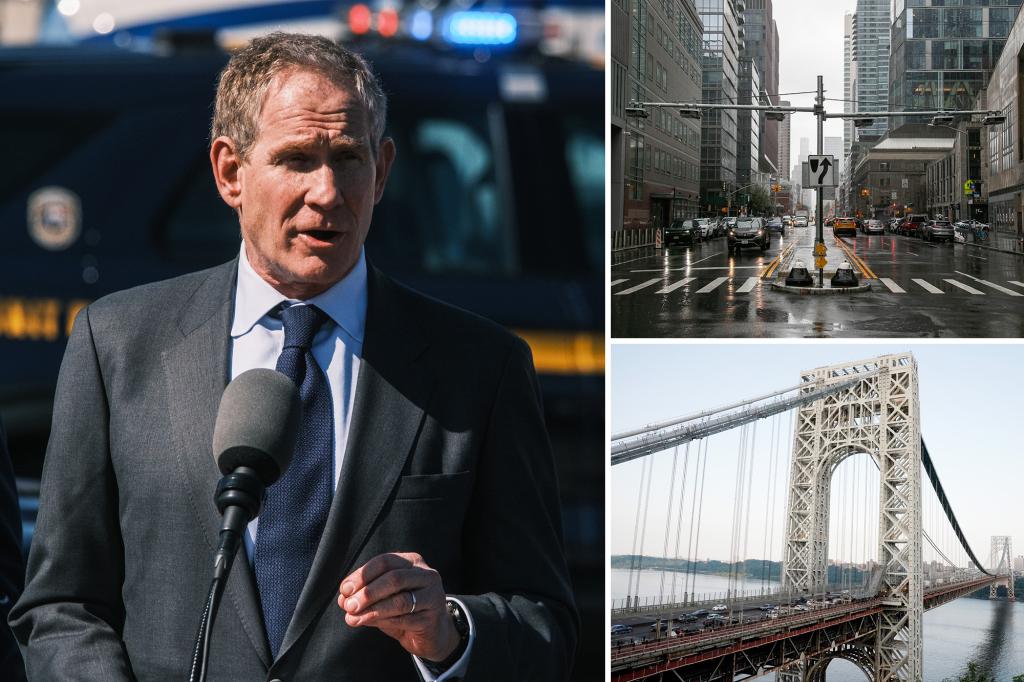The proposed $15 daily congestion toll to drive through Manhattan is expected to provide funding to offset any potential impacts, including added pollution from rerouted trucks and cars. MTA chairman Janno Lieber stated that New Jersey will receive a portion of the mitigation funds based on the number of people impacted by initial truck traffic. New Jersey Governor Phil Murphy is leading a lawsuit against the toll, arguing that the MTA should provide funding to mitigate the effects of increased traffic. The MTA has guaranteed $155 million over five years for anti-pollution programs to offset potential traffic increases in the region.
The toll program would charge drivers $15 per day to travel below 60th Street on city streets between 5 a.m. and 9 p.m., with reduced fees for overnight and off-peak hours. Trucks would face higher tolls based on their size, with discounts for drivers crossing via tunnels under the Hudson and East River. The program is projected to reduce the number of cars on Manhattan streets by up to 17%, but opponents argue that diverted trips could end up impacting other neighborhoods. The toll is required to raise $1 billion per year to finance $15 billion worth of projects to modernize the MTA’s transportation networks.
MTA officials have outlined plans to use the toll revenue on a variety of major infrastructure projects. These include expanding the Second Avenue Subway into East Harlem, overhauling century-old subway signals, renovating crumbling stations to make them more accessible, purchasing new subway trains, and implementing improvements to commuter railroads. The toll program is expected to begin as soon as June and has faced criticism and legal challenges from both New Jersey and local residents.
New Jersey may be eligible to receive funding from two-thirds of the MTA’s anti-pollution initiatives, but specific details have not yet been provided. The toll program aims to address traffic congestion in Manhattan while generating revenue to support necessary upgrades to the MTA’s transit systems. Opponents of the toll argue that it could lead to increased traffic in surrounding neighborhoods as drivers seek to avoid the fees. Despite concerns and legal challenges, the MTA remains committed to implementing the toll to finance critical infrastructure projects in the region.
The MTA has allocated $155 million for anti-pollution programs to offset potential increases in local traffic due to the toll. The toll program would charge drivers and trucks varying fees based on size and time of day, with discounts for certain crossings. Officials estimate that the toll could reduce Manhattan traffic by 17%, but opponents believe diverted trips may impact other areas. The toll revenue is required to fund $15 billion in MTA modernization projects, including subway expansions, signal upgrades, station renovations, and new trains.


